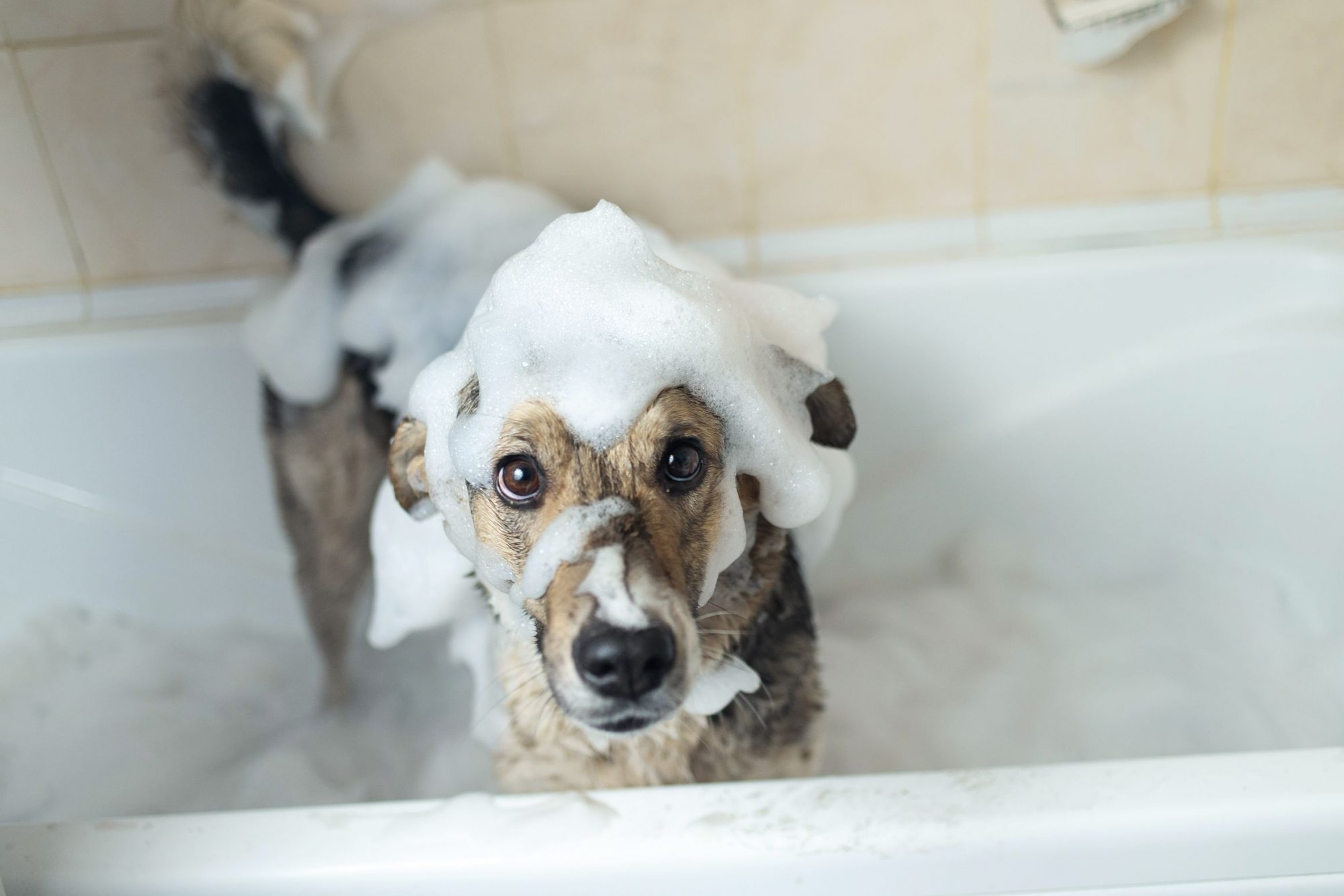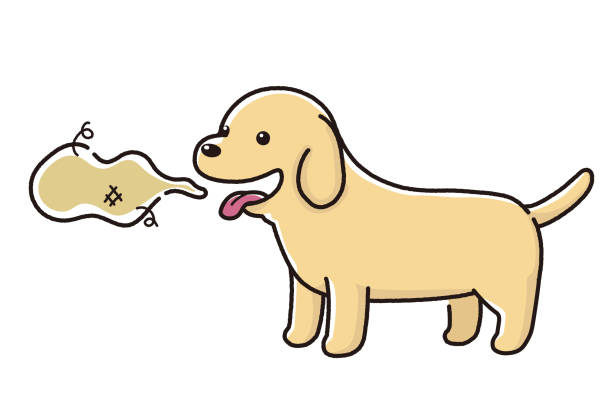We all love our canine companions, but let's face it: sometimes, our beloved dogs can emit quite a potent smell. Whether it's a bad breath, stinky fur, or something more serious like a dog's skin infection, a smelly dog can be a cause for concern.
In this article, we'll explore the various reasons why a dog may smell bad, the potential underlying health problems, and practical tips to address the smelly dog. Let's dive in and learn more about the mysteries of why dog smells bad.

The Notorious Bad Breath
One of the most common reasons for a stinky dog is bad breath. Just like humans, dogs can suffer from dental disease and bacteria buildup in their mouths.
Poor dental hygiene can lead to infections and foul odors emanating from your furry friend mouth. Regular dental care and professional check-ups can help combat this problem.
Skin Infections and Yeast Infections
A dog's skin can also be a source of unpleasant smell. Yeast infections and other skin diseases can lead to a bad odor coming from your dog's fur.
Certain breeds most dogs with skin folds, such as bulldogs and cocker spaniels, are more prone to these issues. Regular grooming and keeping the skin clean and dry can prevent such infections.
Anal Glands - The Culprit Behind Dog Odor
Many dogs have two small glands located near their anus called anal glands. These glands produce a smelly substance that dogs use to mark their territory. Sometimes, these glands can become blocked or infected, leading to a very unpleasant smell.
If you notice your dog dragging its bottom on the ground or your dog is excessively licking the area, it might be time for a vet visit.
Kidney Disease and Internal Organs
In some cases, a foul odor from your dog could be a sign of underlying health problems, such as kidney disease. When kidney failure happens, toxins build up in the body and are expelled through the skin and breath, causing a noticeable smell.
If your dog regularly emits a bad smell and shows other signs of illness, it's crucial to seek immediate veterinary attention.
Ear Infections and Infected Ears
Ear infections and allergies can be another reason for your dog's unpleasant smell. Bacteria and yeast infection can thrive in a dog's ear canal, leading to discomfort and a foul odor.
Regular ear cleaning can help prevent these infections, but if you notice your dog shaking its ears or head frequently or scratching its ears, it's time to see the vet.

Poor Diet and Digestive Issues
Your dog's diet plays a significant role in its overall health and smell.
A poor diet or food allergies can cause gas attacks and other digestive issues, leading to bad smells. Ensure your dog's food is of high quality and free from any allergens.
Hormonal Imbalances and Foul Odors
Hormonal imbalances underlying problems, especially in unspayed female dogs, can result in a foul odor.
These imbalances can lead to skin problems and emit an unpleasant smell. If you suspect hormonal issues, consult your veterinarian to explore appropriate treatment options.
Spot Cleaning and Regular Baths
Spot cleaning your dog between baths can help keep the odor at bay. Use pet-safe wipes or warm water to clean your dog's paws and other odor-prone areas.
Regular baths with a good dog shampoo can also make a significant difference in combating bad dog smells too.
Medicated Baths for Specific Conditions
For dogs suffering from skin irritation and skin issues or yeast issues, your veterinarian may recommend medicated baths.
These special shampoos can target the root cause of the problem and help eliminate dog smell
When in Doubt, Visit the Vet Immediately
If your dog's smell is persistent and doesn't improve with regular grooming or spot cleaning, it's essential to consult your veterinarian.
A foul odor can be an indication of a serious skin disease or underlying problem that requires professional attention.
Preventive Measures for a Fresh-Smelling Pup
Preventing dogs smell is not only beneficial for your dog's comfort but also for the overall environment in your home.
Here are some additional preventive pet - measures to keep your furry friend smelling fresh:
a) Regular Brushing:
Regular brushing not only keeps your dog's coat looking shiny but also helps remove dirt, loose fur, and dead skin cells that contribute to bad odors.
The act of brushing can also stimulate the skin and distribute natural oils, promoting a healthier coat.
b) Dental Care:
As mentioned earlier, dental hygiene is crucial for preventing bad dog's breath.
Introduce tooth brushing as a part of your dog's grooming routine or provide dental treats and toys designed to improve oral health.
c) Proper Nutrition:
A well-balanced and nutritious diet supports your dog's overall health and can positively impact their odor and prevent dog stinks.
Consult with your veterinarian to determine the best food options for your furry friend's specific needs.
d) Monitor Allergies:
Allergies can cause skin disease and lead to unpleasant smells.
Keep an eye out for any signs of allergies, such as excessive nose scratching, and work with your vet to identify and manage allergens.
e) Stay Hydrated:
Ensure your dog has access to fresh, clean water at all times. Proper hydration helps flush out toxins from the body, promoting healthier skin and reducing the dog suffers risk of health problem including kidney-related odor issues.
Addressing Persistent Odors
If your stinky dogs persist to smell so bad despite your efforts to address the common causes, it's crucial to seek professional advice from a veterinarian.
They can perform a thorough examination to identify any underlying health problems that may be contributing to the odor.
a) Diagnostic Tests:
The vet may recommend specific diagnostic tests, such as bloodwork, urine analysis, or skin cultures, to determine if there are any internal issues causing the dog smell off.
b) Tailored Treatment Plans:
Based on the findings, the veterinarian will create a tailored treatment plan to address the root cause of the dog odor itself. This could include medication, dietary changes, or specialized care.
c) Regular Check-ups:
Regular veterinary check-ups are essential, even when your dog appears healthy. Early detection of health problems can prevent them from worsening and improve your dog's overall well-being.
